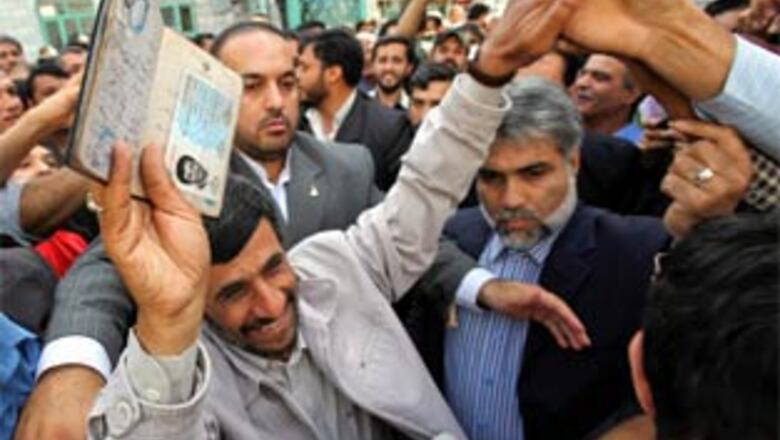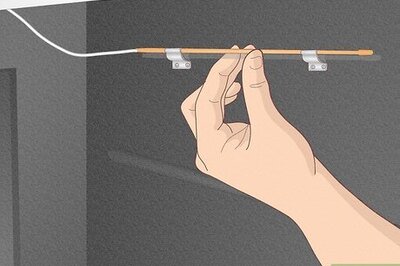
views
Tehran: Incumbent hardliner Mahmoud Ahmadinejad was re-elected Iranian President after winning about 65 percent of the vote in Friday's election, the interior ministry said on Saturday, citing near-complete returns on what it called a record turnout.
The 52-year-old's main challenger, former prime minister Mir Hossein Moussavi, who had declared himself winner of the election shortly after polling closed, later claimed there had been large-scale irregularities.
On the streets of Tehran and other big cities, Ahmadinejad supporters began joyful celebrations while those of Moussavi defiantly claimed that their man had in fact won.
Moussavi was stated by the interior ministry to have gained 31 percent of the vote in a country where Ahmadinejad was expected to have benefited from major support in rural areas as well as among poorer sections of city populations.
With the official result of the election yet to be announced, the ministry said turnout had been almost 80 per cent - the highest in Iranian history.
The two other candidates in the poll - conservative Mohsen Rezaei and former parliament speaker Mehdi Karroubi - gained less than two and one per cent of the votes respectively, as the election turned into a two-horse race.
Although the counting had not finished, Ahmadinejad had already achieved an absolute majority by securing more than 18 million of the 35 million votes cast by the total 46 million electorate, compared to Moussavi's nine million, the ministry said.
However, Moussavi claimed in a press conference on Friday night in Tehran that he was the clear winner, and accused the government of having manipulated both the voting process and the counting.
"I am the definitive winner of the elections and the legitimate president of the people," he said. "I have nothing but the support of the people - but with this support I will go to the very end."
Moussavi and his supporters - the latter having caused a surge of backing for the challenger in a "green wave" campaign that galvanised campaigning in its late stages - had already claimed mass irregularities during Friday's voting.
The former prime minister had chosen the colour green as his symbol for Islam, hope and change.
Among the claims were that mobile telephone networks used so effectively by pro-Moussavi campaigners had suddenly failed to function, and that Moussavi supporters had been denied access to polling stations to see for themselves that voting was fair.
The communications ministry admitted later that there had, indeed, been technical problems.
Officials had kept polling stations open for six hours longer than originally planned as voters turned out in unexpectedly high numbers.
The ILNA news agency reported that even many "silent voters," referring to Iranians who had never voted before owing to their opposition to the system, went to the polls this time.
Witnesses confirmed the ILNA report and said that there have been a number of voters at the polls "whose identity card was totally blank".
A special election page in the Iranian ID cards is stamped every time a vote is given. Iranians opposing the system say that any stamp in their ID card would mean acknowledgment of the Islamic republic.
Fars news agency reported that in villages, turnout reached record highs of 90 per cent. Turnout was also high in provincial cities.
There are 45,713 polling stations throughout the country and 304 for Iranians abroad, including 32 in the US.




















Comments
0 comment